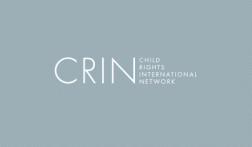In 2009 CRIN launched a campaign to stimulate open and transparent appointment processes for the top jobs in children's rights. The campaign also aims to identify the leaders with the appropriate commitment, skills and experience to fill such positions.
The first appointment to come under scrutiny was the Executive Director of UNICEF.
This job may well be the most important role in children's rights, and yet the process for appointing candidates is neither transparent nor open. As the term of the former Executive Director was nearing its end, we felt the time was right to prompt a change.
With your support, we called on the UN Secretary General and UNICEF’s Executive Board to establish an appointment process for the post of Executive Director that is public, transparent and focuses on ability to promote and safeguard children’s rights, in line with UNICEF’s Mission.
In total, 278 organisations signed the letter and we were delighted to receive responses from several ambassadors who agreed with our position - so thank you for your support!
Former Executive Director Ann Veneman announced her resignation in December 2009.
Tony Lake, who served as US National Security Advisor under President Bill Clinton, took up the post on 1 May 2010. Read about his background here.
We are planning a special piece on how Mr Lake rates on his commitment to children's rights 100 days into the job. What do you think – will he make it onto the CRIN honours list or be awarded a Golden Raspberry for his performance on children's rights so far? If you have details of his achievements or anecdotes about country visits, we would like to hear from you. Please email [email protected].
Here's what we called for:
The UN Children's Fund (UNICEF)
Role:
UNICEF is mandated by the United Nations General Assembly to “advocate for the protection of children’s rights, to help meet their basic needs and to expand their opportunities to reach their full potential. UNICEF is guided by the Convention on the Rights of the Child and strives to establish children’s rights as enduring ethical principles and international standards of behaviour towards children.” (source: UNICEF) The Executive Director oversees an annual budget of more than $3 billion, and manages a staff of 10,000 in more than 150 countries. The Executive Director has managerial and strategic responsibility for the organisation, and reports to the Executive Board.
How?
The organisation’s founding charter, from 1946, simply states that “the Secretary-General of the UN shall appoint the Executive Director in consultation with the Executive Board.” There are no other requirements or directives regarding the appointment, although since UNICEF's establishment in 1947, all chief executives have been American.
Next appointment due: early 2010.
Take action!
CRIN hopes you will agree that child rights NGOs and human rights institutions for children should do what we can to encourage and influence positive changes in the appointment processes for key child rights positions, beginning with the forthcoming UNICEF nomination. We are therefore proposing the following immediate action.
We encourage you to sign the petition below on behalf of your organisation, by Monday 14 September. We will then send the list of organisations, as signatories to the letter, to the Secretary General of the UN, Ban Ki Moon, and to UNICEF's Executive Board.
To: The Secretary General of the UN, Mr Ban Ki Moon
UNICEF Executive Board President Mr Oumar Daou and other Board members
We, the undersigned, are writing to you because we understand the position of Executive Director of UNICEF is soon due for consideration. We recognise that expert leadership is crucial for the realisation of children's rights. We therefore call on the UN Secretary General and UNICEF’s Executive Board to establish an appointment process for the post of Executive Director that is public, transparent and focuses on ability to promote and safeguard children’s rights, in line with UNICEF’s Mission.
We recommend that:
- a description of the qualifications required should be developed and made public
- the process must include consultation with all stakeholders, including civil society, and
- there should be a set timetable for nominations, shortlists and final selection.
While we understand the criteria for appointment will include a number of desired ingredients, such as knowledge of UN processes, and due management experience, we believe that the following are essential:
- experience in the field of human rights
- the ability and willingness to engage with children
- a commitment to engaging with civil society
- a willingness to champion sensitive or unpopular issues of significance to children's lives/rights, and
- proven experience in advancing the implementation of the Convention on the Rights of the Child
We hope that you will understand our concern and interest in this issue. We would be grateful if you would send us information on the selection process and the timescale for making the appointment.

